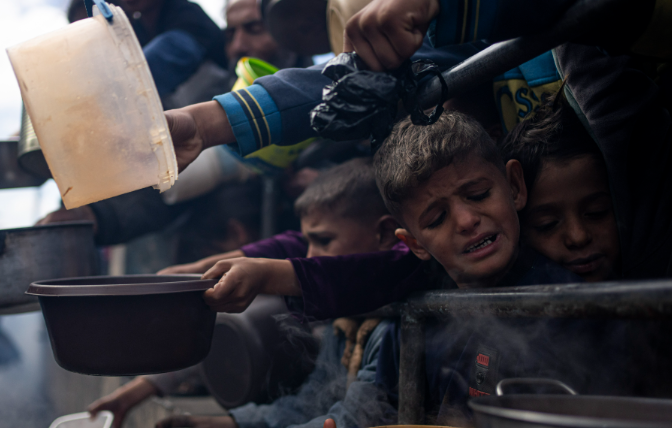Humanity Under Siege, Charter on Display: Gaza Dying of Hunger
DIDPress: On the 80th anniversary of the adoption of the UN Charter – a document that promises peace, dignity, and cooperation among nations – a UN spokesperson warned about the humanitarian crisis in the Gaza Strip, describing Israel’s actions as a clear violation of this historic pledge.

“Israeli authorities continue to prevent fuel from entering and being distributed throughout Gaza. This action has effectively cut off vital services for deprived and starving people,” said Stephane Dujarric, UN SG Spokesperson said during his daily press briefing in New York.
He described the situation in Gaza as “dark and dire” and added that Israel’s military operations continue to have devastating consequences for civilians, including the killing and wounding of dozens who were simply trying to access aid.
Meanwhile, UN Office for the Coordination of Humanitarian Affairs (OCHA) has declared that addressing the widespread deprivation in Gaza is only possible if Israel allows significantly larger volumes of aid, including various types of food, cooking gas, fuel, and shelter materials, to enter.
“For aid distribution to be regular, it is essential that relief items enter daily and through multiple crossings and land routes; this is the only way to ensure that vital aid reaches people consistently, sufficiently, and reliably,” Dujarric emphasized.
He further noted that on Tuesday, the UN and its humanitarian partners attempted to coordinate 15 aid movements within Gaza, but only three were fully facilitated by Israeli authorities; seven were completely denied, and four were initially approved but then halted in practice.
With the symbolic return of the original UN Charter to the organization’s headquarters, this stark contradiction between the organization’s founding principles—defending human dignity and the right to access vital assistance—and the reality in Gaza has once again drawn attention to how committed member states are to their historic obligations.
At this moment of celebration of the UN Charter, the pressing question remains: Does the world still uphold the tenets of this document, or does it view it merely as a piece of paper in a grand museum?